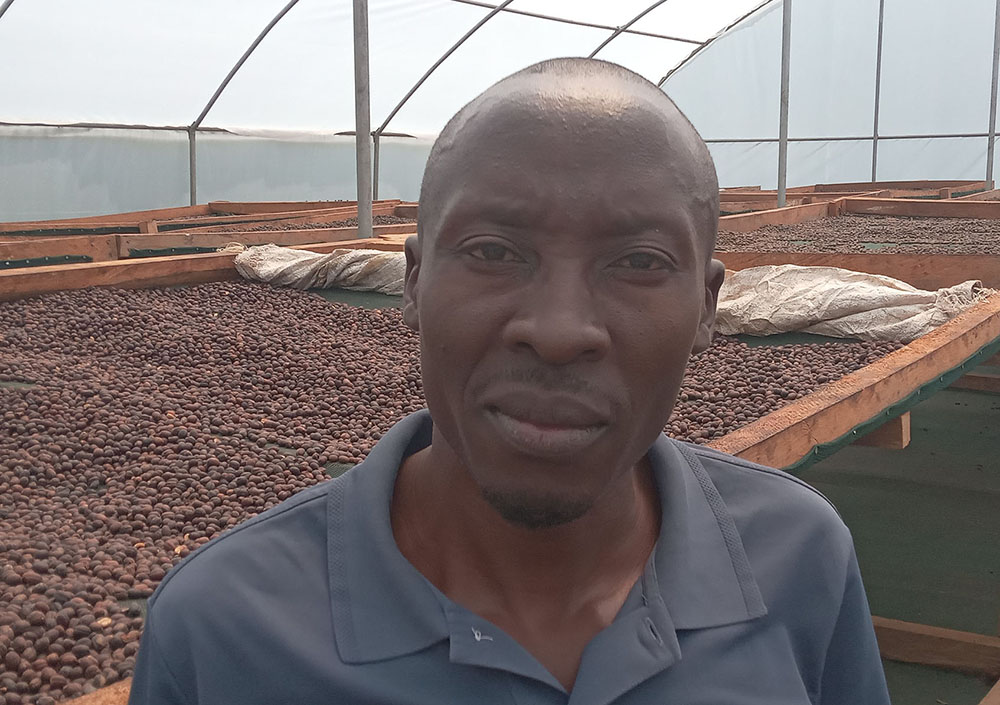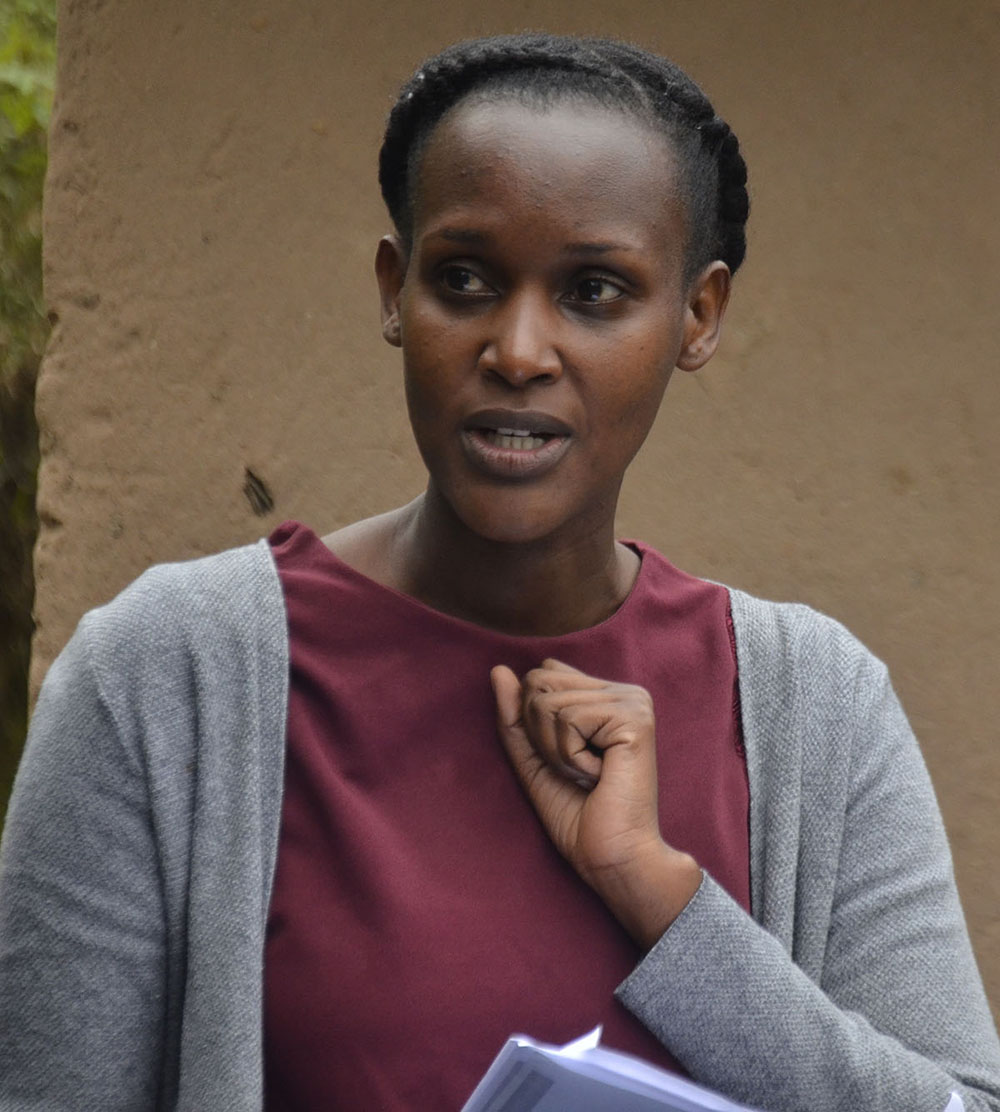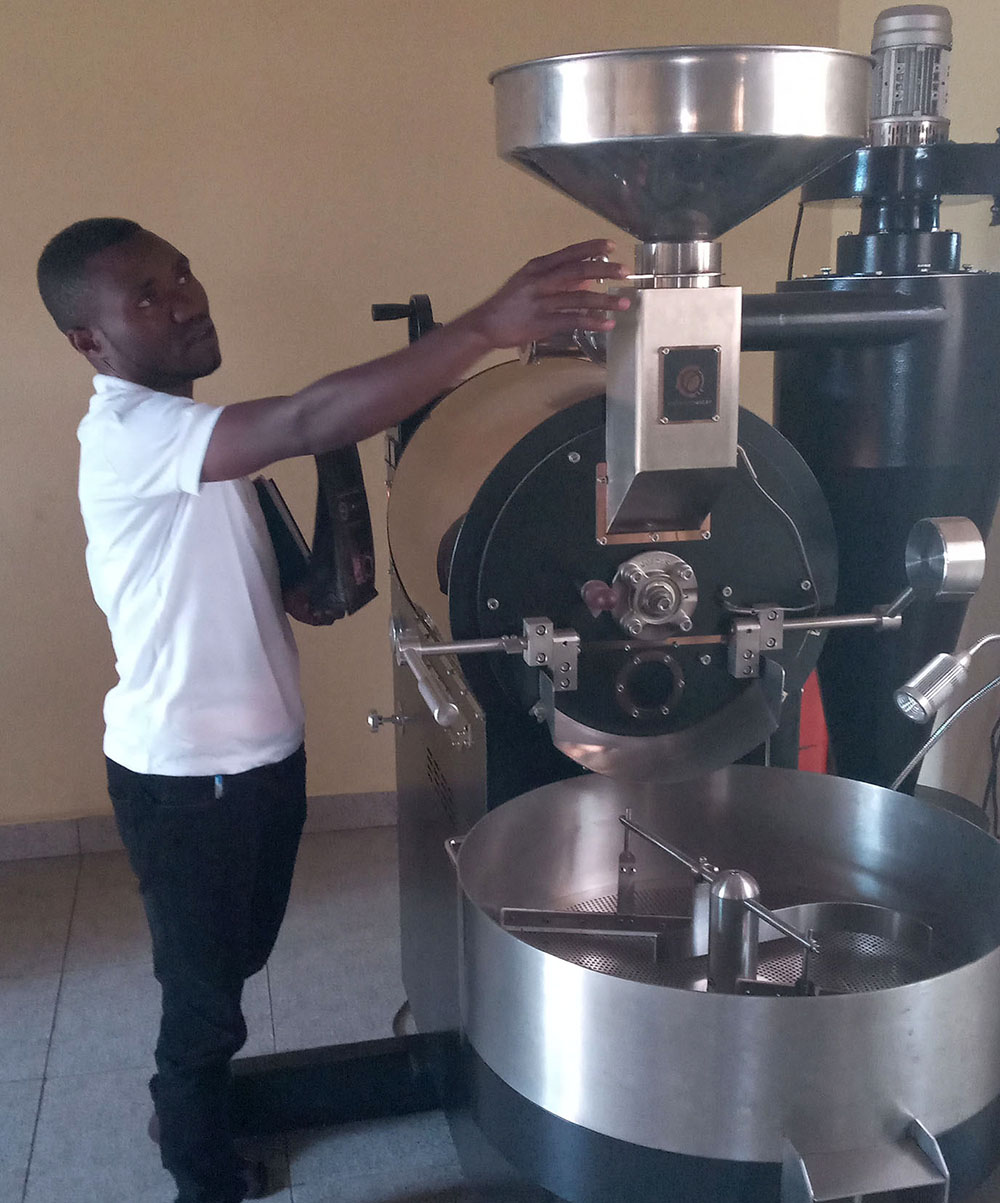Rwenzori coffee farmers embrace value addition for improved earnings
Karangura Co-operative board chairperson John Kagezi attributed the improving fortunes for coffee farmers to the various interventions by the Government and development partners, like the International Fertiliser Development Centre (IFDC).
Rwenzori coffee farmers embrace value addition for improved earnings
___________________
Richard Mutegeki no longer has to worry about where to get money to cater for his household’s needs or pay for the children’s school fees. The model farmer, a member of Karangura Coffee Farmers Saving and Credit Co-operative Society, is assured of good returns from his processed beans and savings.
The farmer, from Kinyankende village, Karangura sub-county in Kabarole district, produces Arabica coffee parchment that he sells to the co-operative. Besides bulking, the group is also involved in coffee roasting and packaging.
It pays member farmers, like Mutegeki, who earned over shillings eight million from coffee last season, a rate higher than the market price. Mutegeki is one of the hundreds of coffee farmers in the Rwenzori region that work with co-operatives involved in agro-processing, assuring them of a sustainable market and access to funding.
Johnson Mibiri, a field officer at Karangura Co-operative, standing in front of the co-operatives solar coffee drier. (Photo Stephen Nuwagira)
Karangura Co-operative board chairperson John Kagezi attributed the improving fortunes for coffee farmers to the various interventions by the Government and development partners, like the International Fertiliser Development Centre (IFDC).
Under IFDC’s Building Resilience and Inclusive Growth of Highland farming systems for rural Transformation (BRIGHT) project, farmers and three coffee cooperatives in the Rwenzori region have been facilitated to improve the coffee value chain, according to Shamim Nalubega, the communications manager.
The project also supports them to secure funding, provides extension services and capacity building and financial literacy, among others, she added during a tour of the project beneficiary farmers and cooperatives on September 2.
Kagezi said that such interventions have helped to “improve the quality, operations, and governance of cooperatives, and also eased access to finance and markets”.

According to Shamim Nalubega, the communications manager at IFDC, farmers and three coffee cooperatives in the Rwenzori region have been facilitated to improve the coffee value chain. (Photo Stephen Nuwagira)
According to Enos Mathahinga, the manager of Kabonero Mountainous Coffee Growers Co-operative Society in Bunyangabu district, the co-op secured the quality mark from the Uganda National Bureau of Standards (UNBS) with support from the project.
“The certification by UNBS has eased market entry for our coffee, globally. We currently have buyers in Italy and the UK, who pay a premium price for our green coffee beans,” he said.
The BRIGHT project is being implemented in the highland areas of Kigezi, Rwenzori and Elgon, targeting to empower over 60,000 small households for improved crop production, food and nutrition security, plus better household incomes among others.
Govt support
In 2021, the Government donated a coffee roaster and coffee grinder to Kabonero Co-operative under the agriculture cluster development project. It also got a coffee pack sealing machine, one generator, four pulpers, a digital weight scale, and a store with the capacity of holding 100 tonnes.

Kabonero Mountainous Coffee Growers Co-operative Society in Bunyangabu district got equipment from the government which includes a coffee roaster. (Photo Stephen Nuwagira)
Bunyangabu district agriculture officer Gerald Tumwesigye said the cooperatives were also being trained in marketing and branding to make them competitive.
Challenges
Despite the gains accruing from these interventions, the co-ops still face several barriers. Johnson Mibiri, a field officer at Karangura Co-operative, said inadequate finance cripples their capacity to bulk coffee.
However, both Karangura and Kabonero have been supported by the project to secure funding from Pearl Capital Partners. Already, Karangura has secured shillings 120 million to bulk coffee this incoming harvest season. There is also a problem of low consumption of coffee in the region, but Mibiri said they were trying to establish a coffee bar to promote coffee consumption among residents.
However, for farmers like Mutegeki, the future holds more promise, these challenges notwithstanding.